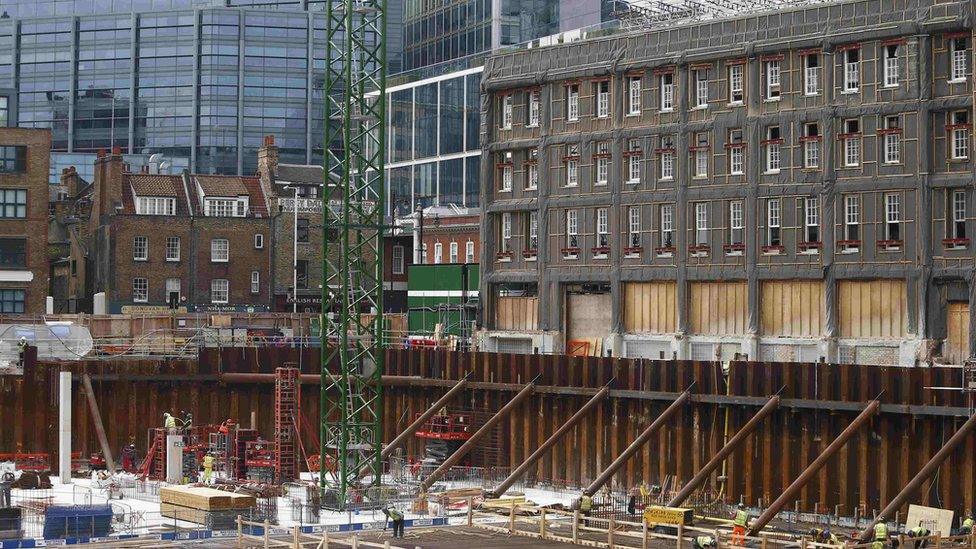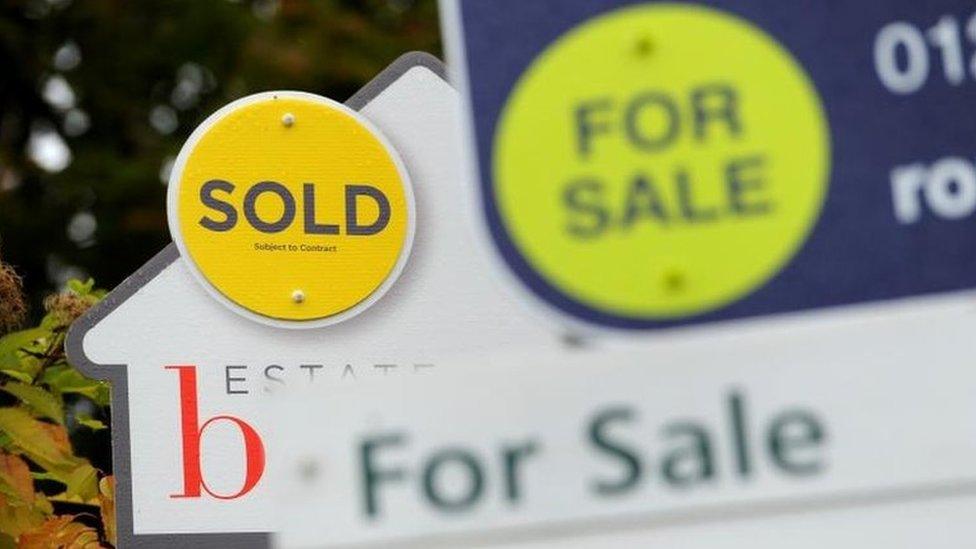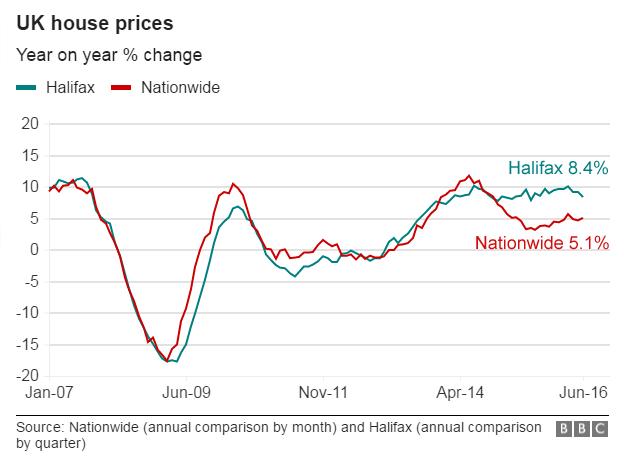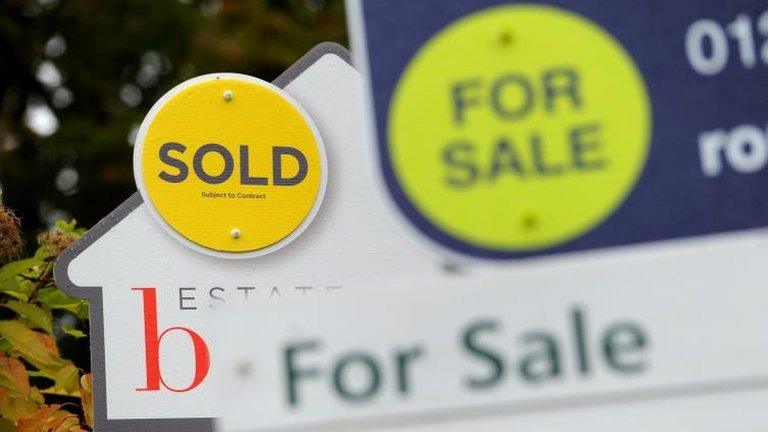How can the UK build more homes post-Brexit?
- Published

Housing sector leaders are urging government to divert billions earmarked for home ownership schemes into social and affordable rented housing to counter an expected post-Brexit downturn.
Private housebuilding in England has been falling amid the uncertainty of the referendum campaign and there are already industry reports of a reduction in new commercial activity since the vote.
"Uncertain times call for pragmatism and flexibility," the chief executive of the National Housing Federation (NHF), David Orr, said on Monday.
"Today, the sector puts forward a plan of action for the prime minister to keep the nation building and tackle the housing crisis. It is a plan that comes at no extra cost to the taxpayer and one that will improve the life chances of hundreds of thousands of working people in this country."

The supply of homes on the market fell at its sharpest rate to date during the month of the Brexit vote
Housing associations are arguing that they be allowed to use some of the £7bn set aside for government discounted starter homes and shared ownership schemes to build affordable homes to rent or buy.
This, they argue, will keep Britain building during the construction downturn.
The call comes just days after a report from the House of Lords Economics Affairs Committee also recommended local authorities and housing associations be "freed to build substantial numbers of homes for rent and for sale" to tackle the housing crisis.
The consultancy Centre for Economics and Business Research (CEBR) suggests a construction slowdown may be on the horizon. In analysis for the NHF, it warns that a 2008-type downturn would wipe out more than a third of GDP growth and cost almost 120,000 jobs in the next decade.
Brexit and housing: Radical ideas wanted
Five changes to your finances following the vote
Why can't Britain build enough homes to meet demand?
How will the extension of Right to Buy actually work?
The NHF, which represents housing associations, points out that their members increased their output by 22% during the last recession, as private development dropped 37%.
But that increase could only happen because central government provided grant support for social and affordable rented housing, money currently focused almost exclusively on homes for sale.
Billions have been allocated to encourage largely private developers to offer discounted starter homes for first-time buyers and shared ownership products.
The new ministerial team now responsible for housing in England will want to take time to consider the proposal.
Housing Minister Gavin Barwell told the Commons on Monday that decisions on affordable housing will be made by the chancellor in his Budget, but conceded that a powerful case had been made for further investment in both homes for rent as well as sale. "We need a mix of tenures - a mix of offers," he said.

In the Queen's Speech in May, the government gave a commitment to build a million new homes by 2020.
Now, the fear is that commercial builders will be much more reluctant to take the risk on new development. Two brickworks in Lancashire have announced plans to turn off their kilns until the prospects improve, usually a sign of an impending downturn.
The increase in supply, desperately needed to deal with the housing shortage, looks unlikely to happen without a change of tack. Figures from the Office for National Statistics released on Monday show the average house in the UK now costs a record £211,000, up 8.1% on a year ago.
Private housebuilding supports around a quarter of a million jobs and is worth around £30bn to the economy annually. Ministers know that a big fall in construction activity would slow economic growth and could see the UK fall into a recession.
The NHF, along with the Chartered Institute of Housing (CIH), are suggesting to ministers that £4.7bn of planned funding for shared ownership and supported housing, along with £2.3bn available to clean up brownfield sites for starter homes, should be switched to building 300,000 affordable homes, including social housing.
"Local authorities and housing associations are not dependent on shareholder sentiment and are able to keep housing supply going when the private sector stalls without requiring extra government spending," CIH director of policy Gavin Smart said on Tuesday.
"They are ready and able to work with government to make sure we keep housebuilding going."
- Published19 July 2016

- Published14 July 2016

- Published14 July 2016

- Published29 June 2016